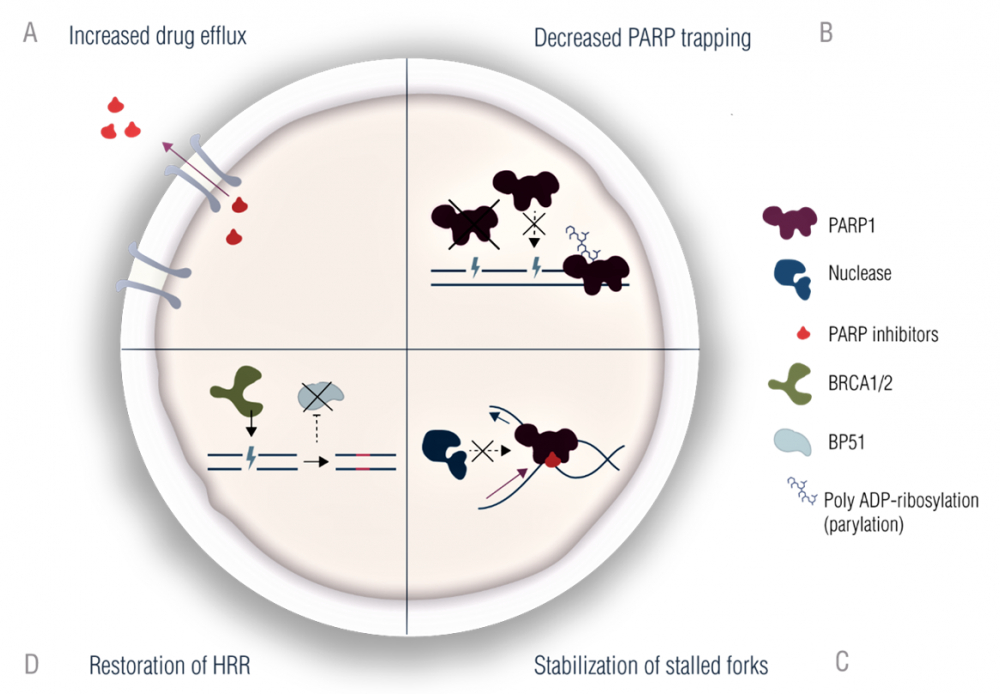This material has been developed as a resource providing information on poly (ADP-ribose) polymerase (PARP) inhibitors in prostate cancer.
The information included in this material is compiled from a review of the medical literature and expert guidance from Elena Castro (medical oncologist), Alexander Wyatt (GU cancer genomics expert), Gerhardt Attard (medical oncologist) and Steven Joniau (urologist).
The resource covers the following topics:
- The mechanism of action of PARP inhibition and its role in the treatment of prostate cancer
- Testing strategies to identify DNA Damage Repair (DDR) mutations in prostate cancer, and their prevalence and clinical relevance
- How to perform genetic counselling
- The difference between different genomic tests
- Clinical efficacy and safety profile of PARP inhibitors for patients with prostate cancer
- Patient selection using genetic/genomic testing results
- The management of adverse events
- The place of PARP inhibition in the prostate cancer treatment pathway and future developments
- The PARP inhibitors in development for prostate cancer
- The potential combination strategies with PARP inhibitors
COR2ED have donated this content to ESMO to reflect that personalised precision medicine is new for most healthcare professionals treating patients with prostate cancer and that there is a need to provide consensus and practical guidance on this topic.
This material has been developed as a resource providing information on poly (ADP-ribose) polymerase (PARP) inhibitors in prostate cancer.
The information included in this material is compiled from a review of the medical literature and expert guidance from Elena Castro (medical oncologist), Alexander Wyatt (GU cancer genomics expert), Gerhardt Attard (medical oncologist) and Steven Joniau (urologist).
The resource covers the following topics:
- The mechanism of action of PARP inhibition and its role in the treatment of prostate cancer
- Testing strategies to identify DNA Damage Repair (DDR) mutations in prostate cancer, and their prevalence and clinical relevance
- How to perform genetic counselling
- The difference between different genomic tests
- Clinical efficacy and safety profile of PARP inhibitors for patients with prostate cancer
- Patient selection using genetic/genomic testing results
- The management of adverse events
- The place of PARP inhibition in the prostate cancer treatment pathway and future developments
- The PARP inhibitors in development for prostate cancer
- The potential combination strategies with PARP inhibitors
COR2ED have donated this content to ESMO to reflect that personalised precision medicine is new for most healthcare professionals treating patients with prostate cancer and that there is a need to provide consensus and practical guidance on this topic.







 Downloadable
Downloadable 


 20 MIN
20 MIN
 Feb 2026
Feb 2026 








